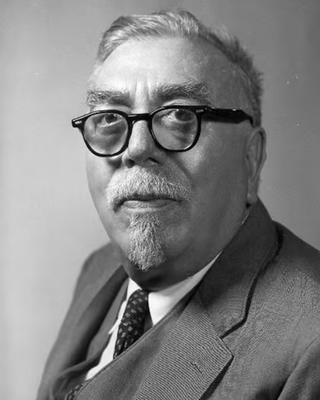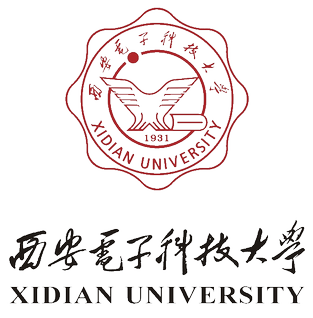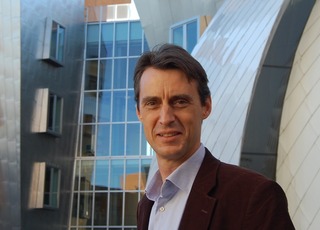Related Research Articles

Electrical engineering is an engineering discipline concerned with the study, design, and application of equipment, devices, and systems which use electricity, electronics, and electromagnetism. It emerged as an identifiable occupation in the latter half of the 19th century after the commercialization of the electric telegraph, the telephone, and electrical power generation, distribution, and use.

Helsinki University of Technology was a technical university in Finland. It was located in Otaniemi, Espoo in the Helsinki metropolitan area. The university was founded in 1849 by Grand Duke of Finland, Emperor Nicholas I and received university status in 1908. It moved from Helsinki to Otaniemi campus area in 1966. The merger of HUT with two other schools created the Aalto University in 2010, and HUT briefly held the name Aalto University School of Science and Technology before being split into four schools in 2011.

Norbert Wiener was an American computer scientist, mathematician and philosopher. He became a professor of mathematics at the Massachusetts Institute of Technology (MIT). A child prodigy, Wiener later became an early researcher in stochastic and mathematical noise processes, contributing work relevant to electronic engineering, electronic communication, and control systems.

Xidian University is a public university in Xi'an, Shaanxi, China. It is affiliated with the Ministry of Education, and co-funded by the Ministry of Education, the Ministry of Industry and Information Technology, SASTIND, and China Electronics Technology Group Corporation. The university is part of the Double First-Class Construction and Project 211.
The MIT Lincoln Laboratory, located in Lexington, Massachusetts, is a United States Department of Defense federally funded research and development center chartered to apply advanced technology to problems of national security. Research and development activities focus on long-term technology development as well as rapid system prototyping and demonstration. Its core competencies are in sensors, integrated sensing, signal processing for information extraction, decision-making support, and communications. These efforts are aligned within ten mission areas. The laboratory also maintains several field sites around the world.
Terrence Joseph Sejnowski is the Francis Crick Professor at the Salk Institute for Biological Studies where he directs the Computational Neurobiology Laboratory and is the director of the Crick-Jacobs center for theoretical and computational biology. He has performed pioneering research in neural networks and computational neuroscience.
José Manuel Nunes Salvador Tribolet is a Portuguese engineer, and Professor of Information Systems at the Instituto Superior Técnico - University of Lisbon, Portugal, who became known for his work on speech coding in the late 1970s.

Thomas Shi-Tao Huang was a Chinese-born American computer scientist, electrical engineer, and writer. He was a researcher and professor emeritus at the University of Illinois at Urbana-Champaign (UIUC). Huang was one of the leading figures in computer vision, pattern recognition and human computer interaction.
Alan Victor Oppenheim is a professor of engineering at MIT's Department of Electrical Engineering and Computer Science. He is also a principal investigator in MIT's Research Laboratory of Electronics (RLE), at the Digital Signal Processing Group.

Hendrik Wade Bode was an American engineer, researcher, inventor, author and scientist, of Dutch ancestry. As a pioneer of modern control theory and electronic telecommunications he revolutionized both the content and methodology of his chosen fields of research. His synergy with Claude Shannon, the father of information theory, laid the foundations for the technological convergence of the information age.
Gordon Stanley Brown was a professor of electrical engineering at MIT. He originated many of the concepts behind automatic-feedback control systems and the numerical control of machine tools. From 1959 to 1968, he served as the dean of MIT's engineering school. With his former student Donald P. Campbell, he wrote Principles of Servomechanisms in 1948, which is still a standard reference in the field.

The MIT School of Engineering (SoE) is one of the five schools of the Massachusetts Institute of Technology, located in Cambridge, Massachusetts, United States. It was established in 1932 as part of the reorganization of the Institute recommended by President Karl Taylor Compton. SoE has eight academic departments and two interdisciplinary institutes. The School grants SB, MEng, SM, engineer's degrees, and PhD or ScD degrees. As of 2017, the Dean of Engineering is Professor Anantha Chandrakasan. The school is the largest at MIT as measured by undergraduate and graduate enrollments and faculty members.
Daniel L. Weinreb was an American computer scientist and programmer, with significant work in the environment of the programming language Lisp.
The Donald P. Eckman Award is an award given by the American Automatic Control Council recognizing outstanding achievements by a young researcher under the age of 35 in the field of control theory. Together with the Richard E. Bellman Control Heritage Award, the Eckman Award is one of the most prestigious awards in control theory.
The School of Engineering at Rutgers University was founded in 1914 as the College of Engineering. It was originally a part of the Rutgers Scientific School, which was founded in 1864. The school has seven academic departments, with a combined undergraduate student enrollment of over 2,400 students. It offers over 25 academic and professional degree programs. These include several interdisciplinary programs, such as Environmental Engineering with the Department of Environmental Science, and the graduate program in mechanics.

Vincent Daniel Blondel is a Belgian professor of applied mathematics and former rector of the University of Louvain (UCLouvain) and a visiting professor at the Massachusetts Institute of Technology (MIT). Blondel's research lies in the area of mathematical control theory and theoretical computer science. He is mostly known for his contributions in computational complexity in control, multi-agent coordination and complex networks.

The Chengdu University of Information Technology, formerly the Chengdu Meteorological College (成都气象学院), is a provincial public university in Chengdu, Sichuan, China. The university is affiliated with the Province of Sichuan, and co-sponsored by the China Meteorological Administration and the Sichuan Provincial Government.

S. Hamid Nawab is Professor of Electrical and Computer Engineering and Biomedical Engineering at Boston University who is a researcher, educator, and engineer in the signal processing and machine perception subfields of Electrical Engineering and their application to the machine/computer analysis of complex biosignals from auditory, speech, and neuromuscular systems.

Ahmed H. Tewfik is an Egyptian-American electrical engineer, professor and college administrator who currently serves as the IEEE Signal Processing Society President. He also holds the Cockrell Family Chair in Engineering #1 at UT Austin. He served as the former chair of the Department of Electrical and Computer Engineering at the Cockrell School of Engineering at the University of Texas at Austin from 2010 to 2019. For his research and contributions to the field of Signal Processing he was elected as an IEEE Fellow in 1996, received the IEEE Third Millennium Award in 2000, and awarded the 2017 IEEE Signal Processing Society Technical Achievement Award.
References
- ↑ "Sertac Karaman's personal website". karaman.mit.edu. Retrieved 2023-12-21.
- ↑ Alan S. Willsky, Edwin Sibley Webster Retired Professor of Electrical Engineering at M.I.T. Archived 2001-07-10 at the Wayback Machine
- ↑ Biography of Alan S. Willsky.. Archived 2007-02-08 at the Wayback Machine
- ↑ Alan S. Willsky was elected in 2010 as a member of National Academy of Engineering in Electronics, Communication & Information Systems Engineering for contributions to model-based signal processing and statistical inference.